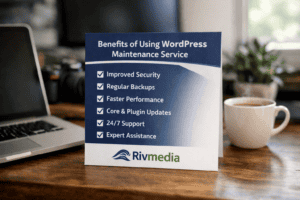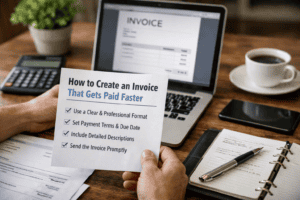Table of Contents

If you’re self-employed, you’ll need to know which business insurance requirements you’re particular business has. These can vary depending on whether you run your company from home or an office and the type of business you have.
What Business Insurance Do I need?
There are a range of different forms of company insurance on sale. The right kind of policy for you can vary based on a variety of factors, including:
- How many people you have employed
- The assets that you need to cover
- The sort of company you run
Scroll down to see what’s available and what you may need.
Running A Business From Home
When you set up your company from home, the best thing to do is speak to your current insurer to clarify your plans. They might be just looking for a little extra fee on your existing policy. If you don’t inform your insurers and you need to make a claim, you might find that your premium is invalid and that your claim won’t be paid.
Don’t presume that you’re covered by your own household policy. Although though nine out of ten home insurance plans will protect your home’s business equipment, it’s best to be certain.
Usually, the coverage would depend on the use of the home being for clerical purposes only (for example, office work).
So if you have any clients to do with your business ( e.g. customer visits), you won’t be covered.
Other Kind of Business Insurance You Might Benefit From
Here are a variety of insurance needs that you may have to consider for your company.
Motor Insurance
If your company requires vehicles, make sure that your policy provides company use coverage.
This also includes private policies where employees drive his or her own car in conjunction with your company.
When you are unsure, get them to consult with their insurer to ensure their business usage is included.
Professional Indemnity Insurance
If you are a specialist who offers other forms of advice or services to your clients, then you should be covered by professional insurance.
It pays off if you are reckless or make a mistake that causes your company to incur a financial loss.
The forms of company that use this form of the policy include:
- Doctors
- Solicitors
- Engineers
- Architects
- Journalists
- Accountants
- Business consultants
- Financial advisers and many more
Employers’ Liability Insurance Cover
If you employ individuals, then you need insurance to pay compensation to injured workers when doing their work. That is a legal requirement.
Buildings & Contents Insurance
It will shield you from loss if your premises and the contents are damaged by fire, flooding, robbery and other loss.
The best level of coverage will depend on whether you own or lease your premises as well as on the value and content of your buildings.
Equipment Insurance
The equipment and machines that you use for your company will be covered for the expense of repairing them or their existing value, taking into account wear and tear.
You may also get policies to shield machinery and IT equipment from breakdowns.
This could be worth talking about for all of your equipment, or even just the main equipment that you wouldn’t be able to do without.
Tradesmen’s equipment can also often be applied to another liability insurance policy, so it is worth questioning if that is possible if you have public liability insurance.
Public Liability Insurance
In the event of a mistake, this shall be compensated for. Any of your business activities which cause injury or damage to the customer or to members of the public.
Typical examples will be a member of the public who trips and is injured as a result of a spill on a shop floor that is not marked with a warning sign.
You’re more likely to need this when people visit your premises, for example, if you run a store. It is a legal necessity for a few firms, such as horse riding stables.
Customers would want to see evidence of sufficient insurance before they do business with you.
Product liability Insurance
If you have made, sold or fixed items that have injured or killed someone or destroyed someone’s property, you may have to pay compensation.
You may be held liable for damage or injury caused by defects in the design or manufacture of your product, even if you have not been negligent.
If your company is in a particularly high-risk market, such as food and drink, toys or the electrical industry, then you should take this seriously.
Product liability insurance is also protected by public liability insurance.
Goods-In-Transit Insurance
If you have goods or stocks that you send around the nation, you might want to think about safeguarding them in case they are lost or damaged while they are being shipped.
It is usually covered by road or rail and can often be extended to inland or coastal waters. Global travel by sea or air must be covered separately.
Credit Insurance
This applies to you against the risk that your customers won’t pay you because they’re going under or because they haven’t paid in good time.
You are able to tailor your cover to suit your needs – to cover your entire turnover or just that of key customers.
You can also defend yourself against the risk that overseas customers do not pay food goods received.
However, you’re still going to have to bear some of the risks yourself – so the insurance might cover you 80 per cent, and you’re going to have to shoulder the remaining 20 per cent.
Key Person Insurance
It extends the business up to the negotiated amount for any financial loss that may result from an unexpected death and injury of a key employee of the organisation – including the owner or manager.
Individuals that may be covered include a director, a key sales agent, a critical project manager, or someone with particular expertise or experience that is of interest to the organisation.
Legal Expenses Insurance
This includes costs for the defence of legal action, such as fees for lawyers and court costs.
Typically, this applies to employment disputes, property protection and contractual disputes.
Business Interruption or Business Continuity Insurance
It will compensate you for the damages incurred and the loss of income if you are struck by a bad situation such as a flood or fire
Travel Insurance
Whether you or your staff need to fly abroad for work, you might want to seek business travel insurance. If you’re only travelling for work, you may want to check that your personal travel insurance policy covers business trips.
Best Places To Get Insurance Quotes
There are a lot of online brokers around in 2020. You should be cautious of clicking on google ads for things like insurance brokers as you need to find a trustworthy company to purchase your insurance through. That being said, independent brokers may be able to offer you a better deal, but it might be a good idea to find a local independent broker. That way, you can go there and see them if anything goes wrong with your policy.
Some of the best online insurance broker/comparison sites for self-employed people are as follows:
Simply Business
Simply business allows its customers to build a custom insurance package tailored to their specific trade needs, it then provides live online quotes based on your exact requirements enabling site visitors to buy their insurance online, have the policy emailed over to them and get themselves legally insured in less than 30 minutes.
AXA Insurance For Self Employed
AXA is a large insurance company; they cover a wide range of sectors and offer other insurances such as home, car and travel etc. Their motto is “build the insurance that fits your business. They are a well-known company with millions of clients worldwide. They come highly recommended by many, and you won’t ever have to cover any of your legal or compensation costs with them.
Compare The Market – Public Liability Insurance For Self Employed
Compare the market is an online insurance broker, simply select the type of insurance you need and watch live quotes appear on the screen. Once you have found the insurance you want and are happy with the price, click the link and you’ll be taken to the insurance companies site to complete the transaction. Compare the market is used by many people for all of their insurance requirements, namely their car, home and travel insurance.
We hope you found this guide to the best business insurance for self-employed useful, don’t forget to leave us a comment!











